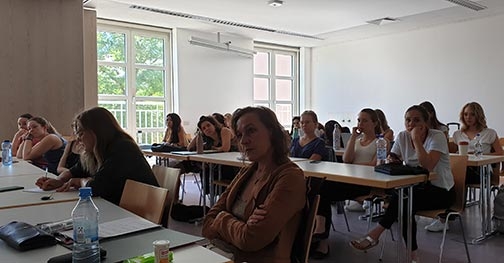VINCE is European funded project that aims at promoting validation of learning in higher education and provide support to HEI staff in order to validate migrants‘ and refugees‘ prior learning.
VINCE so far has developed
- Country reports about the implementation of validation in various European countries,
- Case studies about the impact of validation on inclusion,
- Guidelines and a prototype training course for university staff involved in validation processes to be better prepared when working with newcomer candidates.
Furthermore, policy recommendations are being developed, targeted at EU, national decision makers and institutional learners.
On 4th July 2019 a workshop took place at Ludwig-Maximilians-University, which brought together experts, stakeholders, HEI staff and students in order to discuss the European model of validation of competences in the field of refugees.
In a first step the participants were presented the major pillars of the Lisbon Recognition Convention, which sets out the standards that shall govern validation. While recognition of prior learning refers to the recognition of formal qualifications (prerequisites for entering a higher level of a hierarchical, formal system), validation goes beyond, and also refers to the assessment of competences acquired outside the formal education system. The aim is
- to determine which competences are certifiable at all and, where this is feasible (Information)
- to identify the goals against which competences shall be validated (Identification)
- to create portfolios of supporting documents relevant for validation, such as certificates, test results, work results (Documentation)
- to evaluate the person’s skills and competences (Assessment)
In the second section of the workshop the participants jointly with practitioners from in- and outside HEI discussed the practical implications of the Convention with a view to
- identify changes in current practice necessary to meet the standards of the Lisbon Recognition Convention,
- identify constraints in the recognition of informal learning, such as competences hardly to prove or testify,
- consequences recognition practice in Germany has or can have for universities, students and in the context of the wider society.
Learn more about the project from the VINCE website
